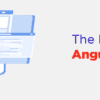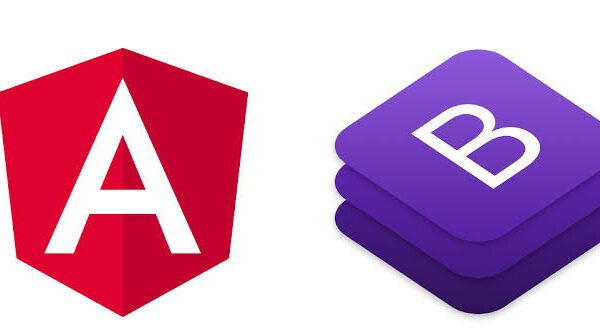In 2009, two software developers got together with the goal of developing a JavaScript framework that would become the best possible tool for creating single page web applications. The resulting work is known as angular.js. Since its initial release in October 2010, angular.js has quickly become one of the most used JavaScript development platforms for web applications.
Today, angular.js is maintained primarily by Google and a number of industry partners interested in seeing it thrive. Among its strongest points are easier testing and the integration of a number of components required for rich internet applications.
Are you using angular.js as a web application developer? If so, you know that the framework has a lot of advantages. If not, you should at least look into it. To prove the point, here are five things to love about angular.js:
1. Angular Is Perfect for Agile Development
Agile software development is quickly becoming the industry norm due to its built-in capabilities for parallel workflow. As such, angular.js is the perfect JavaScript framework for agile development. It supports parallel workflow by allowing multiple individuals and development teams to work on various aspects of a given project at the same time without having to worry about breakage.
2. Angular Supports Dependency Injection
Dependencies are the sharp pins that pop developer balloons on a daily basis. Just one dependency problem can set a project back considerably. One of the strengths of angular.js is that it supports dependency injection. Simply put, developers can break down a project into separate modules that are all initialized separately even though they share dependencies.
3. Single Page Superiority
Some people refer to angular.js as a framework that represents what the standard web browser would have been like had it been designed to run Web-based applications. Whether that’s true or not it’s hard to deny that angular.js is superior for developing single page applications. Angular includes the necessary infrastructure and journaling right out-of-the-box; it even includes templates for faster app development.
4. Angular Was Built with Testing in Mind
Some frameworks are built with the knowledge that testing is necessary but not all that important to the framework itself. Angular is different. From the first stages of development, the framework was built with testing in mind. Developers who use it are therefore test driven. In other words, the whole goal is to develop, complete, and test a single module at one time so that when all of the modules are connected everything just works. This is a better way of meeting deadlines and improving delivery.
5. Angular Makes for Easier UI Manipulation
Angular offers a number of features that make manipulating user interfaces a lot easier. For example, the framework makes it possible to structure a UI so that it can be understood by virtually everyone involved in the project regardless of individual tasks. This results in fewer UI hang-ups and faster delivery.
No, Angular Is Not Perfect
You might get the impression from this post that angular.js is a perfect JavaScript framework. Well, it’s not. There is no such thing as perfect. Angular does have its weaknesses that some developers find they cannot tolerate. For example, documentation has consistently been lacking since the start of the project. Google’s reputation for skimping on documentation has only exacerbated the problem. Developers who need help may have to search far and wide to find what they’re looking for.
The weaknesses of angular.js notwithstanding, it is now the preferred JavaScript framework for single page web applications. You should at least consider using it if you’re not already doing so.
Waqar Hassan is a Blogger, Author and Entrepreneur who heads an IT & Web Company. He loves writing and manages several blogs including https://menaentrepreneur.org and https://www.migratemusicnews.com. Waqar Hassan is one of the top Freelancers in the SEO and Digital Marketing Industries. He can be contacted at http://www.waqarhassan.con OR via [email protected].
























































































































































































